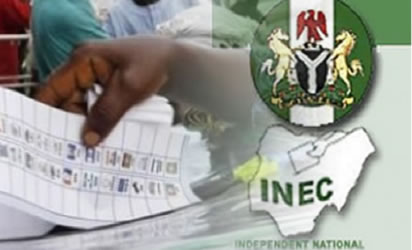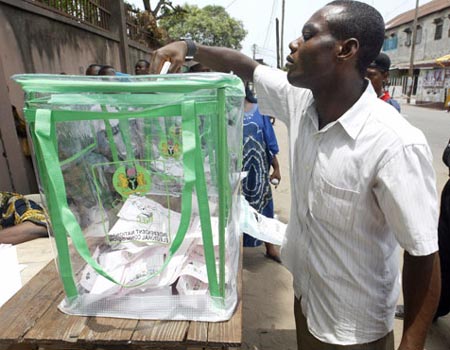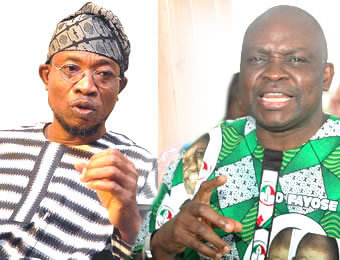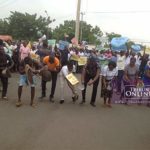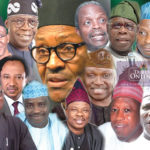IF the trend of elections Nigeria has experienced since 1999 continues, then there is already a template for the 2019 polls. Most of the main actors for the past 18 years of civil rule are the same set of active gladiators in the political space. They are still firing from all cylinders, either as godfathers pulling the strings or acting by the sidelines as real demagogues following the gathering momentum towards the elections.
Another set comprises those with intimidating war chests deployed to hijack party machinery or running through a vicious circle to bulldoze their way to take ownership of the real power circuit. They possess the ace even in the peripheral parties such that they determine what the conduct and behaviour of such political would be. Their harlotry and penchant for undermining due process will have a far-reaching import for the process that would culminate in the primaries of the parties; whoever wished to be the candidates will be determined by their whims and caprice of the few power drunks.
In the next couple of months, the parties will kick-start the processes of producing their candidates for the 2019 elections. The Independent National Electoral Commission (INEC) time-table indicates that the presidential and the National Assembly polls will hold on February 16, 2019, while both the elections for the governorship seat and into the state Houses of Assembly, as well as the Federal Capital Territory (FCT) holds on March 2, 2019. However, the real contest for the 2019 epic battle will be coming up in Ekiti and Osun states on July 14, 2018 and later on September 22, respectively in governorship races that have already been generating various permutations. The tenure of the Ekiti State governor, Mr Ayodele Fayose and that of Osun State, Mr Rauf Aregbesola, will expire on October 15 and November 26, 2018 in that order. While July 14, 2018 was selected as the Election Day for Ekiti State, INEC fixed Osun’s election for September 22. The dates were chosen in tandem with Section 178 (2) of the 1999 Constitution (as amended) and Section 25 (8) of the Electoral Act 2010 (as amended) which stipulated that election into the office of governor should be held not earlier than 150 days and not later than 30 days before the expiration of the term of office of the last holder.
But as the country inches closer to the 2019 polls, some of the critical issues that will play important roles in the success of the elections and might even need major attention in 2018, will include the following:
The 1999 Constitution, Electoral Act and other extant laws constitute the guide to the election. The laws explicitly spell out the role and functions of the INEC, political parties, security agencies, the media, the civil society groups, as well as other critical stakeholders in all elections. But the provisions of these laws have frequently been subverted; fundamental processes that precede the main elections are often compromised; just as the outcome actual election is enmeshed in cacophonies. Collusion among the agencies of government, including security agencies usually lead to a litany of post-election woes: protests, litigations and petitions before elections petition tribunals. Thus, the INEC usually has its hands more than full after major elections such that in the 2015 elections alone, there is an avalanche of cases pending before the courts. The complicity of the security personnel, who would rather than upholding the demands of their duty, compromise with electoral officials and agents of political parties, leaves much to be desired. Nonetheless, there are assurances from some quarters that the new Electoral Act will prevent some of the issues that have become a recurring decimal before and after elections. Senator Ovie Omo-Agege representing the Urhobo of the Delta Central Senatorial District in the Senate said: “We’ve had two bills: the first bill basically addresses all the lapses in the Electoral Act. We saw the weaknesses in the Electoral Act; we figured that the reason these electoral bandits were able to get away with some of these robberies were because of those lapses. So, the first thing I sought to do as a Senator was to get my colleagues together. I wrote the bill to address those lapses. The principal lapses that we discovered that we felt needed to be addressed was this issue of might is right – thugs coming in, seizing electoral materials and writing results and we felt that there’s going to be a way to checkmate that and the best way was the innovation that INEC came up with which was the card reader. Some of us relied on the use of that card reader because we felt that if the card reader was used for the purpose of accreditation, it is the best way to determine the number of people who actually were accredited and who actually voted, but of course some people still sought to circumvent that, the issue became whether or not the card reader is even legal….”
INEC
The INEC remains the focal point of all stakeholders in the nation’s political circle. This is because of its primary status as being among the most critical in the set of umpires on election matters. The judiciary only comes in the event of disputations before and after elections. For the umpteenth time, the Commission has declared a steady progress in its phased programmes in its preparation for the elections through consultations, workshops, seminars and skill acquisition and capacity building for its staff members, sometimes in collaboration with local and international agencies and bodies. The INEC has equally moved to reposition the nation’s electoral process and system through legislation by approaching the National Assembly. The series of elections that the commission has conducted across the country, arising from the 2015 elections as well as governorship polls in Ondo, Edo and Anambra states provided INEC with opportunities to test the efficacy, efficiency and impact of its preparations, especially on the basis of past lessons. Yet, the INEC and security agencies seemed not to have overcome a number of problems that signposted the 2015 elections: challenges over Smartcard Reader; policing and security challenges, just to mention two. So, in reality, in the face of scarce resources, can anyone vouch for INEC as making real progress in its preparations ahead the main elections in 2019?
No doubt, there is greater awareness among the citizens about their rights in all ramifications. What is lacking is their willingness and actual demand to assert those rights. In rural and urban places, pertinent issues in the political circle dominate public discourse. Many believe politicians have continued to shortchange the populace who they had promised to serve based on the mandate freely given at the polls. Almost 20 years into civil rule, most Nigerians believe they have been handed over the lean end of the stick: grinding poverty, collapsed infrastructure, unrealistic projects, and so on. Such misery poses a danger to the growth and development of democracy as the 2019 elections approach. Again, desperate politicians will swoop on the people this time to exploit the precarious economic situation; offering peanuts, throwing bones at the people like famished dogs and dangling souring carrots just to hoodwink the less discerning voters sometimes through witch doctors.
Media
The media as the Fourth Estate of the Realm is crucial in any election. It plays the role of the watchdog; it moderates and modulates the action and inactions of the other critical stakeholders in the process and the roads that will lead to all elections. A distressed and frustrated media industry can hardly play those roles objectively and disappointedly. An enabling environment for the media is key to a successful poll. A compromised media poses a big and major risk to the elections with the eventual negative effects on the larger society and in democracy. The social media bill is hanging precariously like the Sword of Debacles. A caged media industry through legislation, pretenses towards an unwarranted self-censorship, as well as denial of access to important information and vital resources to support and boost its role as the veritable platform for the cross-fertilisation of ideas and feedback mechanism will undermine the 2019.
With the governorship elections in Osun and Ekiti states months away, the political gladiators are bound to become more desperate in their bid to gain an upper hand. Because political contests are often perceived as a war situation, the actors might want to achieve their aim by deploying all arsenals in pursuit of their cause, as in their opinion, the end will always justify the means. The neutrality of INEC, security agencies, coupled with the vigilance of election monitoring agencies-local and international-is critical. Both the ruling parties and main opposition in the two states might place everyone on edge until the election is convincingly won and lost, either via the polls or before the tribunal.
Political parties
Like a swarm of sparrows, the nation is witnessing a resurgence of political parties. While to some observers, it is a welcome development in the spirit of democracy because the more the merrier, others are calling for caution because of the implications, especially to engender confusion. The propensity of parties for impunity in coming up with standard bearers is a controversial since 1999. Their tendency to undermine due process, with the attendant negative effects, have always heated up the polity and tension, and it is debatable if the key actors, especially in the leading parties like the PDP and the APC have learnt any useful lessons, going by what happened in Ondo, Edo and Anambra elections. The issue of hate speech is another matter that constitutes what some observers consider an ugly trend that may take the centre-stage in the build up to the 2019 general election. Rather than throw up and sustain issue-based campaigns, the leading parties and their leaders are already raking up mundane matters and sheer propaganda. Matters that touch the heart and welfare of the majority of the 180 million populations, with more than 70 per cent of them still eking a living in rural communities are being sacrificed on the altar of frivolities and self-adulation. Facts and figures are been subsisted with fictions with the belief that the critical mass is ever gullible.
Money politics
The deeper the pocket, the easier for you to make an inroad or captured the political parties. Politics of ideas and principle has been overshadowed by politics of the pocket and stomach. While some of the noveau riche have decided not to watch from the spectators’ stand any longer, as they now throw their hats in the rings, others, deeply entrenched in the political system, have used their enormous resources acquired as a result of political patronage by their surrogates, to not only consolidate their firm grip on the political lever but to also fend off possible intruders out to upstage them. And in the battle for the soul of the parties ahead the 2019 elections, the fate of the majority within the parties and in the larger society will depend on shape and form as well as fallouts of the show of strength and superiority with those with the most awesome war-chest.


